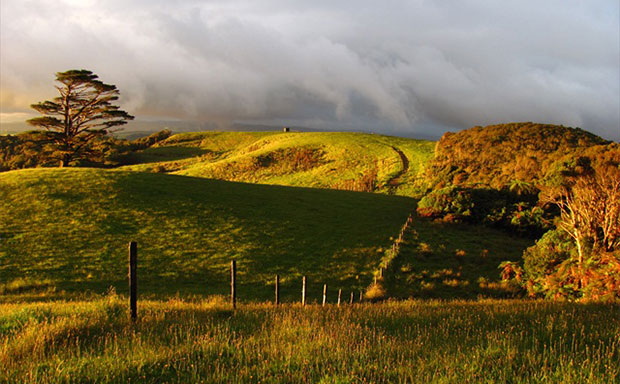Fancy Conservation Volunteering in New Zealand? As a volunteer you will learn about the forest, its creatures, about conservation, off-grid living and most importantly about yourself.
Join our free Conservation Volunteering program in New Zealand. Nestled on the slopes of the second-highest peak in Northland, New Zealand. The sanctuary consists of 100 hectares of regenerating native forest. Views of the ocean an unexplored forest and the calls of the kiwi under the bright stars are just some of the many experiences to be had.
This is not the type of place where tour buses stop every hour or so. The Pupu Rangi Nature Sanctuary is located 250km from a crowded city, 50km from the closest supermarket, and 2km from the next-door neighbour.
- Stay duration: Preferred stay is 3 weeks
- Places available: 8 volunteers
- Hours & roster: 40 hours a week
- What’s included? Free accommodation
- What’s Not Included? Flights, internal transport, travel health insurance, pocket money, visa. Fee of $75 NZD/£40 a week towards living including food.
Help Required
Some of the Conservation Volunteering tasks that you could be involved with are:
- Marking and mapping forest trails.
- Installing and refilling bait stations.
- Weed control.
- General help around the place (we are a project in progress).
Expect a 50/50 mix between Conservation Volunteering work and general help. A typical day’s schedule looks similar to the one below:
- 8am – 9am breakfast.
- 9am – 9:30am communal area clean-up.
- 10 am – 12pm morning working activity.
- 12pm – 1pm lunch/picnic.
- 1pm – 4pm afternoon working activity.
- 4pm – 6pm leisure activities (free time).
- 6pm – 8pm dinner.
- 8pm – 10pm leisure activities (sunset watching, soccer, dusk bird chorus) .
Hours & Roster
- 40 hours a week.
- The preferred stay length is 3 weeks.
- Message chat before agreeing stay.
Sleeping: Basic accommodation (bunk bed in a small hut) is provided free. Although the facilities are very basic, they include hot showers and long drop toilets. A generator will be on for a couple of hours in the evening to allow for battery/phone charging etc.
Linen & Laundry: Please bring your sleeping bag and towels. The closest laundry facilities are in Dargaville, about 50km away. You can wash small items in the sinks.
Eating: Delicious food is provided to all of our volunteers. Meals will be provided three times a day. You are more than welcome to contribute and improvise for your fellow volunteers. We cater to most dietary requirements if we are told beforehand. To be able to continue with our conservation efforts, we ask our volunteers for a small contribution towards the cost of food and living. The cost is NZD 75 per week to a volunteer, which is around £40 per week.
Transport: If you do not have your wheels we will pick you up in the closest town (Dargaville) on Mondays at 5:30 pm. This time is chosen to coincide with the arrival of the public bus from Whangarei. To get to Whangarei, you can use either Intercity or ‘Nakedbus’ departing from Auckland early in the morning.
If you have your transportation, we will meet you at the Trounson Kauri Park public car park Monday at 20:15. More detailed pick-up information will be provided upon confirmation of stay.
Conservation Volunteering in New Zealand Amenities & Preferences
- Accommodate up to 8 volunteers at any one time.
- Male and female helpers accepted.
- 18 + age preference.
- Single travelers, two friends, couples are welcomed and accommodated.
- The Pupu Rangi Nature Sanctuary is an alcohol-free zone.
- Strong mobile phone signals are available in the common area for both Internet and voice.
- Learning: Each volunteer will receive training on how to use the compass/walkie-talkie thus ensuring continuous contact and positioning in case someone strays away from the group.
What to Bring
The weather can be quite chilly and wet even in the middle of summer. Here is a suggestion as to what you might want to bring:
- Wet weather gear (rain pants, rain jacket, solid hiking shoes, and rubber boots).
- Warm clothes for the odd chilly nights.
- Enough socks/underwear to last you the whole stay.
- Hat and sunscreen.
- Insect repellent depends on the level of comfort – no mosquitos but there are sand-flies sometimes.
- Swimming gear – we might go swimming in a lake.
- Sleeping bag.
- Some snacks or drinks.
SafetyWing is the world’s first insurance made for nomads, by nomads. Get global travel medical insurance. Get Insured >>
More Volunteering Opportunities
- Volunteer in Singapore and help a child with special needs.
- Volunteer on a farm with over 300 animals in care in NSW, Australia
- Be a hostel volunteer on a Colombian island in the Caribbean Sea
- Volunteer Work Hostel Spain on the Beach
- Hostel Volunteer Work in France
- Communal Living France
- Join our Hostel in Mostar, Bosnia and Herzegovina as a Volunteer
- Farm Hand and Hostel Work Stay in Ireland
- Visit France – Be a Part of the Restoration of a French Chateau
- Learn Cider Making in England

